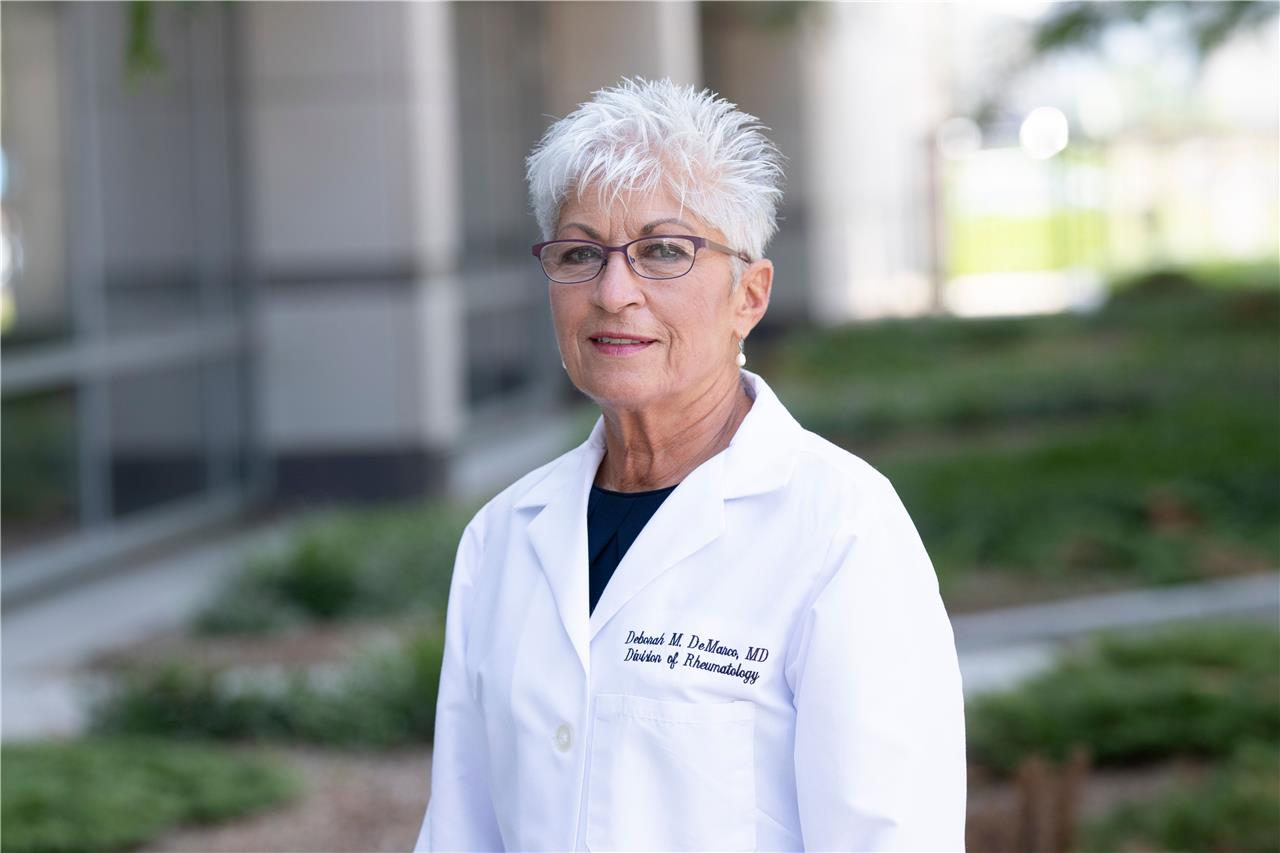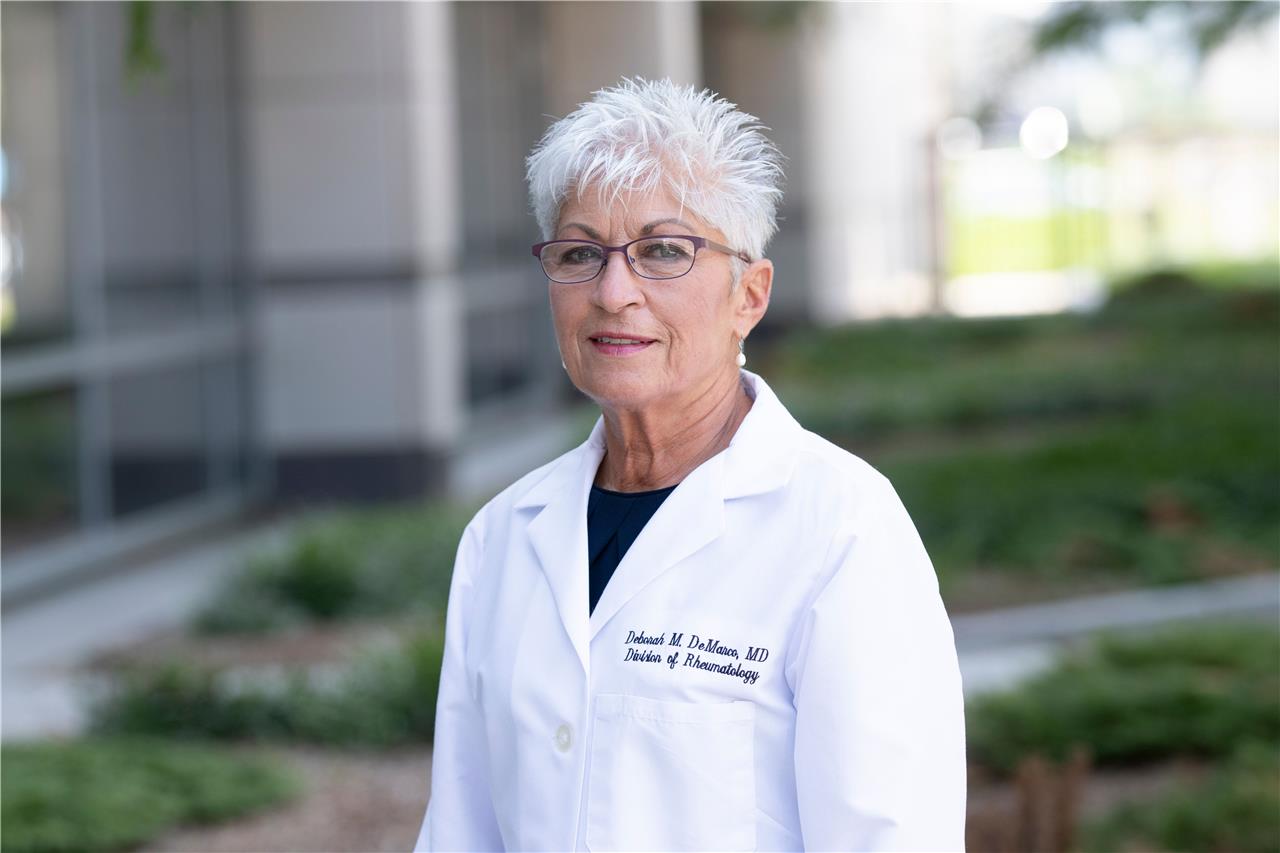This interview is one in a series of interviews with recipients of the 2021 ACGME Awards. The awardees join an outstanding group of previous honorees whose work and contributions to graduate medical education (GME) represent the best in the field. They were honored at the ACGME Annual Educational Conference, which took place virtually February 24-26, 2021.
2021 Parker J. Palmer Courage to Lead Awardee Deborah M. DeMarco, MD is the senior associate dean for clinical affairs, associate dean for GME and designated institutional official (DIO) at the University of Massachusetts Medical School. She specializes in rheumatology.
ACGME: How did you become involved in medicine, and in academic medicine specifically?
DeMarco: I started college as a nursing major and switched to pre-med during my second year, thanks in part to a wonderful advisor. I was chosen to be chief resident at Temple University School of Medicine and realized that I really enjoyed the administrative, teaching, and mentoring roles. I never wanted to be in private practice. I did a three-year rheumatology fellowship at University of Pennsylvania because although I didn't want to do bench research, I thought the extra year of fellowship, which was largely research-focused, would help me with my career goal of staying in academic medicine. After fellowship I returned to Temple as an attending, was appointed to be the associate program director, and have remained in GME administration ever since. I became program director for the internal medicine residency shortly after coming to University of Massachusetts Medical School.
ACGME: What does this award mean to you?
DeMarco: This is a very meaningful award to me because of the principles and values upon which it is based. I view my role predominantly as being an advocate for our learners but, as the DIO, difficult decisions often must be made. It's very rewarding to be recognized for that leadership and this award is one of the highlights of my career.
ACGME: What do you feel is the most important job a designated institutional official has?
DeMarco: I feel that the most important job a DIO has is to ensure that the residents and fellows under my purview receive the educational experience they came to my institution for and that they do so in an environment that is respectful and conducive to their learning. It is a balancing act between the needs of the institution and the needs of the learners.
ACGME: What is the most rewarding part of your job?
DeMarco: The most rewarding part of my job is when I can help a resident who is in need—whether it is a mental health issue, a learning deficit, physical health issue, or conflict within the learning environment. I try to advocate for the residents' educational opportunities and enhancements to their programs, but also for the continued improvement of working conditions, such as call room upgrades, food, parking, etc. I also find great satisfaction in mentoring new program directors, as their jobs can be difficult.
ACGME: What is the most challenging?
DeMarco: There are many challenging parts to this job so it is tough to pick one, but I would say that one of the most challenging is when a resident is not meeting performance standards and is given a disciplinary action. Fortunately, this is a rare occurrence, but working with the program directors to make sure the documentation is complete, that the process is fair, and that the learner has been able to tell their side are all vitally important. We really want our residents and fellows to succeed but sometimes people realize they are not on the right path or not pursuing the right specialty. It can be heartbreaking for everyone involved. The other huge challenge is balancing the service needs of the hospital with the educational needs and well-being of the learners. I'm fortunate, however, that I have excellent support from leadership.
ACGME: What advice do you have to residents who may be interested in pursuing a career in academic medicine?
DeMarco: I have had a phenomenal career in so many ways that when residents ask me about a career in academic medicine I am extremely positive and help them plot a course of action to reach their goals. This involves how to say "no" and what types of activities to pursue. I have had residents do "administrative electives" with me so they can get a sense of what day-to-day GME administration entails, but I have also encouraged them to become leaders in medical education. Ultimately, I hope to help guide them to the best opportunities available to reach their goals.




